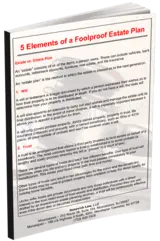
Do you have life insurance? How about a 401K? An IRA? Maybe a brokerage account? If you have any of those things, minor children, and no estate plan, there’s a good chance you’ve made a crucial mistake in your planning.
All of those accounts give you the opportunity to fill out beneficiary forms. Typically, people will name their spouse as the beneficiary, and their children as successor beneficiaries should their spouse not survive. This is generally acceptable if your children are over the age of 18, but what if they are minors?
Minor children cannot inherit assets. So, if a minor is named as the beneficiary of one of those accounts and something should happen to the account owner, the assets would be held for that minor until they turned 18.
Think about what you were like when you were 18. Had you inherited a large sum of money, would you have known what do so with it? Would fancy cars have been the top 3 items on your shopping list?
Of course, there is a way to do this correctly. The right was for a minor to inherit assets is through a trust. The trust can name a trustee to manage the money and spend it for the minor as needed. It can outline the potential uses for the money and give guidance to the trustee. It can allow for the distribution of the money at certain ages or at certain milestones (college graduation, first job, wedding, home purchase, etc) to direct positive behavior. It can even be designed to protect from divorce, creditors, and bankruptcy. The beneficiary, then, of all those accounts should be the trust, rather than the individual.
Check your beneficiaries on those accounts – if minor children are listed, it likely makes sense to put some estate planning in place.

 (856) 439-6223
(856) 439-6223
